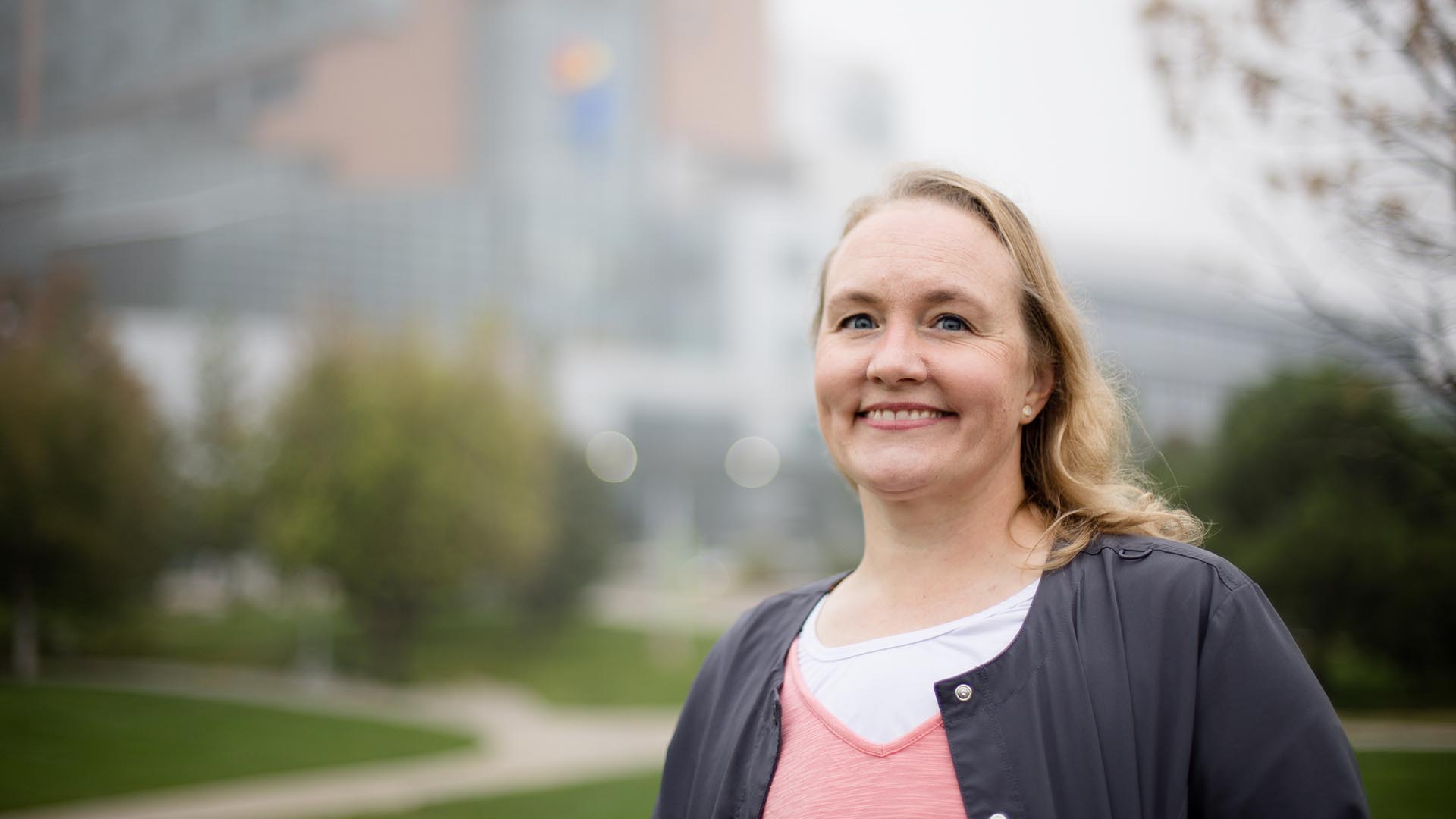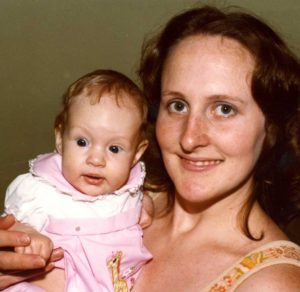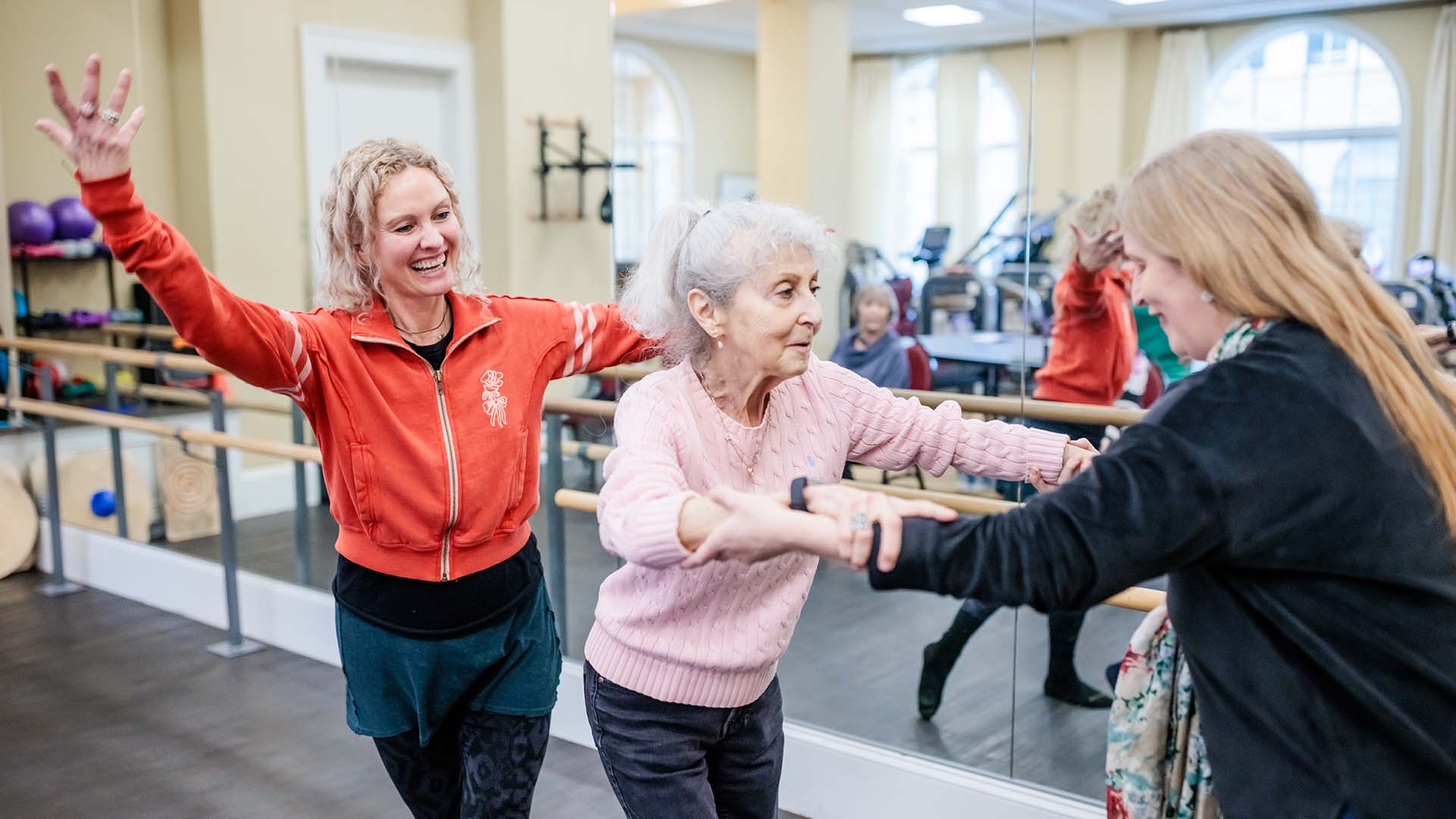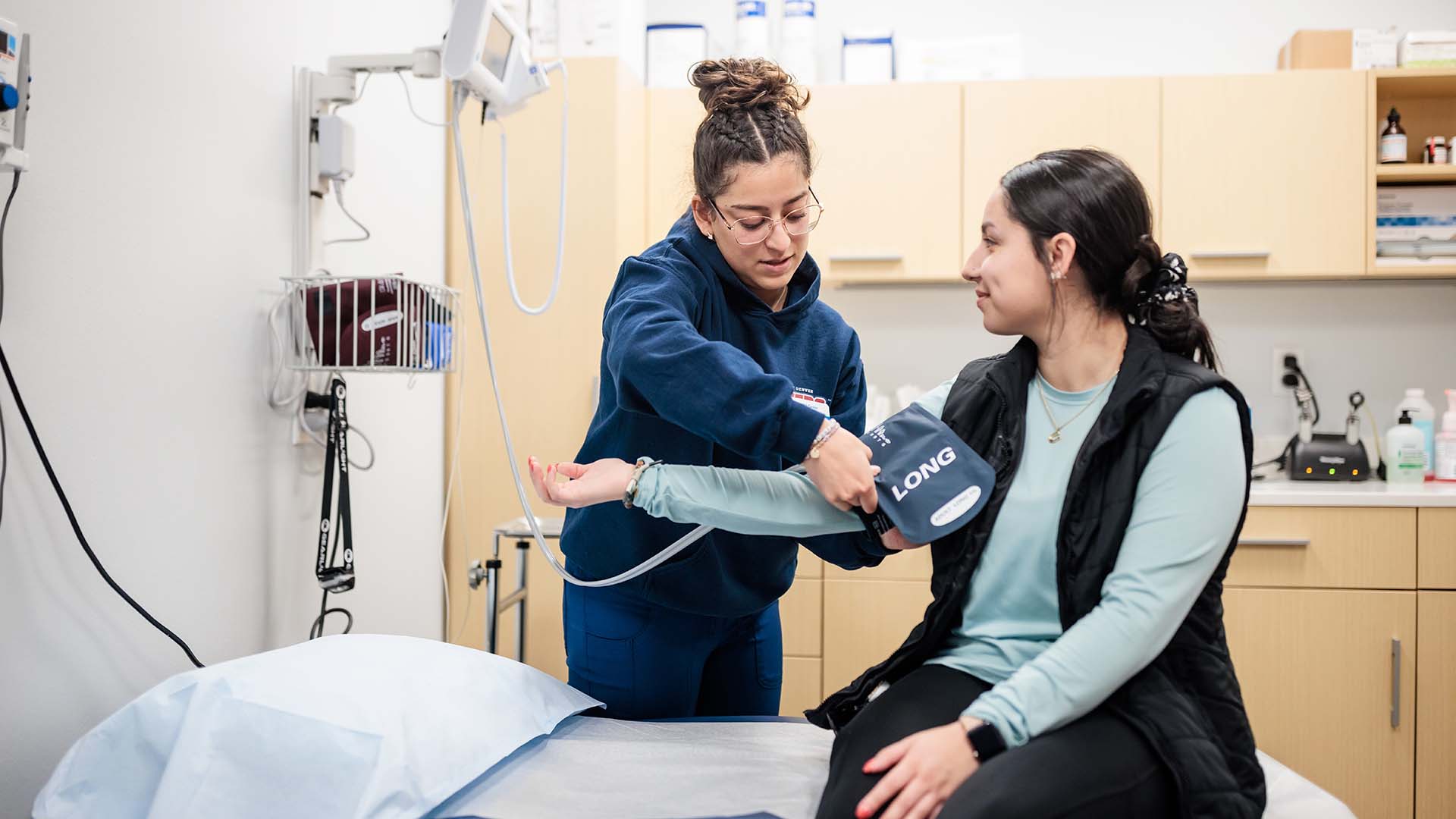Cancer survivor aims to guide others through the complex health care system
Health Navigation Fundamentals course at MSU Denver helps student evolve her career to have greater impact.

Dani Valks, a 10-year breast-cancer survivor, chose a career in health care so she could help others going through similar struggles.
When she was diagnosed in her 30s, she didn’t have health insurance and hit roadblock after roadblock while trying to find care. The tone from her providers, she says, was indifferent, even cold. Valks remembers receiving her test results. “It said ‘invasive ductal carcinoma,’ and I started crying,” she said. “I said, ‘Does this mean I have cancer?’ And (the physician’s assistant) just shrugged.”
After enduring that challenging experience, Valks wanted to support others on their health care journeys. Once she finished chemotherapy, she applied to phlebotomy school because it was the quickest way into the health field.
Today, she’s looking forward to evolving her career to make more of a difference. “I really love phlebotomy, and I love working in a lab,” she said, “but I’m ready to get on with what I came here to do.”
This past spring, Valks completed the Health Navigation Fundamentals class at Metropolitan State University of Denver, hoping to become a health care navigator.
Health care navigators — also known as health educators, community health workers, care managers, patient-access managers or patient advocates — help patients understand the health care system and access resources so they get the best possible care.
The course is part of MSU Denver’s Career Launchpad, which offers affordable pathways to high-demand jobs. The course is completely online and self-directed, offering maximum flexibility — ideal for students such as Valks with full-time jobs.
RELATED: How ‘stackable credentials’ can help shore up Colorado’s workforce
Valks has worked as a phlebotomist for 10 years and finds great reward in her work. She has had her eye on a patient-navigator job for some time but knew she needed more education before she could apply.
She researched other health care navigator programs across Colorado, but most of their class schedules didn’t fit with her full-time work obligations, she said. When she saw an ad on social media for the Health Navigation Fundamentals course at MSU Denver, she knew that was the course for her.
“I’m sure I could walk into a patient-navigator job and do a good job,” she said. “But taking the Health Navigation Fundamentals class gave me so much more understanding about how I would be helping (patients) and what barriers they face.”
Since it’s part of the stackable-credentials program, the course lets students take the class as a stand-alone noncredit course and immediately apply for jobs and enter the workforce. Or students might choose to convert the course to credit and get a certificate or work toward a bachelor’s degree in Public Health.
Allison Draayer has taught in MSU Denver’s Department of Health Professions since 2014 and has worked in health care for 15 years. She has a background in social work and is a full-time community health care manager.
“I really encourage anybody who’s going to go into health care to have these skill sets,” she said. “If you want to be a medical provider one day, if you want to go to nursing school, if you want to be an administrator in a hospital, the coursework really helps you to connect with patients on an individual basis to really understand what they’re coming in with.”
Draayer said the course helps health professionals recognize the social determinants of health that go beyond the physical body.
“Do (the patients) have connections with people outside of themselves?” she said. “Do they have access to healthy food? Do they have access to electricity, you know, basic human needs? If those needs aren’t being met, then the chances of them having a healthy lifestyle are really low or are just a lot more challenging.”

Valks understands these challenges better than anyone. When she found a small mass in her breast, it immediately stirred painful memories of her mother’s and aunt’s deaths from breast cancer. But Valks earned $12/hour working at a doggy day care at the time and didn’t have health insurance. She put the mass out of her mind.
But after a year passed, she couldn’t ignore it anymore. She turned to Planned Parenthood, where she received a grant for a free mammogram and a consultation with a surgeon. Yet Valks still felt she was battling her diagnosis all on her own. Eventually, her Planned Parenthood nurse recommended that she go to the Caritas Community Clinic at St. Joseph Hospital. “Caritas really took care of everything,” Valks said.
Now that she has completed the Health Navigation Fundamentals class, Valks plans to take the next two courses and sit for an exam to become certified as a health navigator in Colorado. From there, she’ll have the option to continue on toward a bachelor’s degree in Public Health.
Before cancer, Valks says, she was a “total doormat.” Going through the wrenching experience helped her find her voice. Now, she can help others find theirs.




